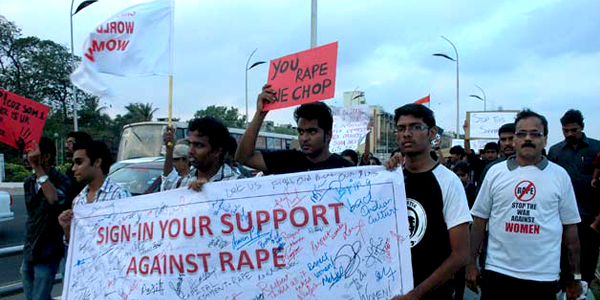The following speech was originally given at the Stop Porn Culture Conference at Wheelock College, Boston, in July 2013.
Hello everyone, my name is Kourtney Mitchell and I am a political activist and a member of the group Deep Green Resistance. We are a radical organization dedicated to social, political and environmental justice. As an organization we ally ourselves with indigenous communities, women, people of color and the poor. Our aim is to stop the destruction of the planet and the oppression of people and animals.
We are a relatively new organization just a couple of years old but we are growing and have numerous chapters with hundreds of activists around the world who are all dedicated to stopping the genocide of the planet.
So, I’ll offer just a brief background on my experience as a man with pro-feminist activism and educating men. I attended university and it was there that I first received academic and activist training in feminism and anti-violence through the peer education program on campus.
The peer education program consists of graduate students, faculty, and staff who train undergraduate volunteers. The training includes education about the widespread violence that women face and volunteers learn to give presentations to peers on rape, sexual assault, relationship violence, and feminism.
In turn, peers would then join our organizing efforts and events. This was the most profoundly significant and life changing time for me. To travel around the country raising awareness of violence against women, facilitating workshops, speak-outs, and protests was fulfilling, not to mention meaningful. The training threw me into another world, one in which violence and misogyny could no longer be ignored. Our advisors did a really comprehensive job of giving us an adequate scope of the problem, and creating a sense of urgency about these issues.
They helped facilitate the creation of a student culture based on the belief that it is possible to end violence against women, and knowing that possibility helped galvanize us to take action. Many of us went on to make this our life’s work.
My primary role in the campus activist community was recruiting and teaching men about pro-feminism and anti-violence. I helped lead the male ally program, which included a weekly discussion group, activism in the community, pro-feminist art and performance, and collaborations with other similar programs around the country.
I remember vividly the anxiety of pouring over every detail of presentations I would be giving to men, worrying if the way I presented concepts was too complicated or if men would shut down for the rest of the talk if I said something too complicated. I left some events feeling like no one was reachable, but I also walked away feeling really good about the successes which were accomplished.
Many men joined our organizations and became quite active – some because they just felt it was the right thing to do, but many more because of personal experiences and the experiences of their loved ones. Several men randomly wandered into our office and left planning to attend the next ally meeting, and sure enough did continue coming. This was just one of the many things that kept me optimistic about bringing more men to pro-feminist ideas and activism.
Unfortunately, the campus activist community was largely liberal and very much influenced by queer theory. Pornography was widely accepted, and a real revolution against the patriarchal order was more joked about than seriously considered. It wasn’t until I was introduced to the radical feminist perspective that I began to see the flaws of the liberal approach to pro-feminist education.
